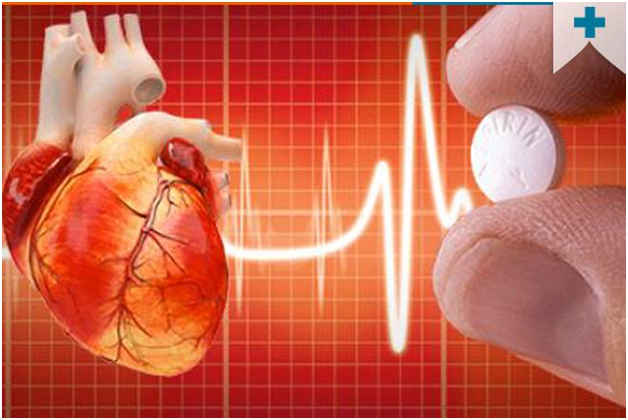We all know that aspirin is used to treat pain and fever. What most people don’t know is that aspirin can also be used, in long term, to prevent blood clots, stroke and heart attack. In fact, low dosage of aspirin may be given immediately after a heart attack to reduce the risk of another heart attack.
For more than 100 years, aspirin has been used as a pain reliever. How can a simple pain relief drug prevent heart attack? We shall know the answer to this question in today’s blog but first let’s look at heart attack.
Most heart attacks occur when the blood supply to a part of your heart muscle is blocked. This usually happens when deposits of fatty substances, cholesterol, cellular waste products, calcium and other substances build up in the inner lining of an artery. This build-up is called plaque.
Plaque can grow large enough to significantly reduce the blood flow through an artery. But most of the damage occurs when a plaque becomes fragile and ruptures. When they do, they attract platelets to their surface. Platelets are tiny blood cells that trigger blood clotting. As the clot grows, it blocks the artery. If the blockage is complete, it deprives a portion of the heart muscle of oxygen. As a result, muscle cells die and it’s a heart attack.
This is where aspirin helps. Aspirin thins the blood and helps prevent blood clots from forming. Thus, it helps prevent heart attack. People with high risk of heart attack should take a daily low dosage of aspirin (as instructed by doctors) to prevent heart attack. Heart attack survivors also take daily low dosage of aspirin (between 81 and 325 mg) to prevent further heart attacks.
Who can benefit from Aspirin Therapy
- People with coronary artery disease
- People who have had a heart attack
- People who have undergone bypass surgery or angioplasty placement to treat heart disease
- People who have had a transient ischemic attack
Who shouldn’t take Aspirin:
Aspirin is known to have several side effects like gastric ulcers, stomach bleeding, tinnitus etc. You should not take aspirin if you:
- Have an aspirin allergy or intolerance
- Are at risk for gastrointestinal bleeding or hemorrhagic stroke
- Drink alcohol regularly
- Are undergoing any simple medical or dental procedures
- Pregnant women (unless otherwise directed by your doctor)
- People who are about to undergo surgery
- People taking regular doses of other pain medications like Motrin
Aspirin helps prevent heart attacks. This doesn’t mean that if you are having a heart attack, you can consume aspirin and think the pain will fade away. If you are undergoing any kind of pain in the chest area, immediately call emergency care. Apollo Hospitals have an excellent team of cardiologists and emergency care who are at your service 24×7. Call 1066
Book an appointment for online consultation here



















